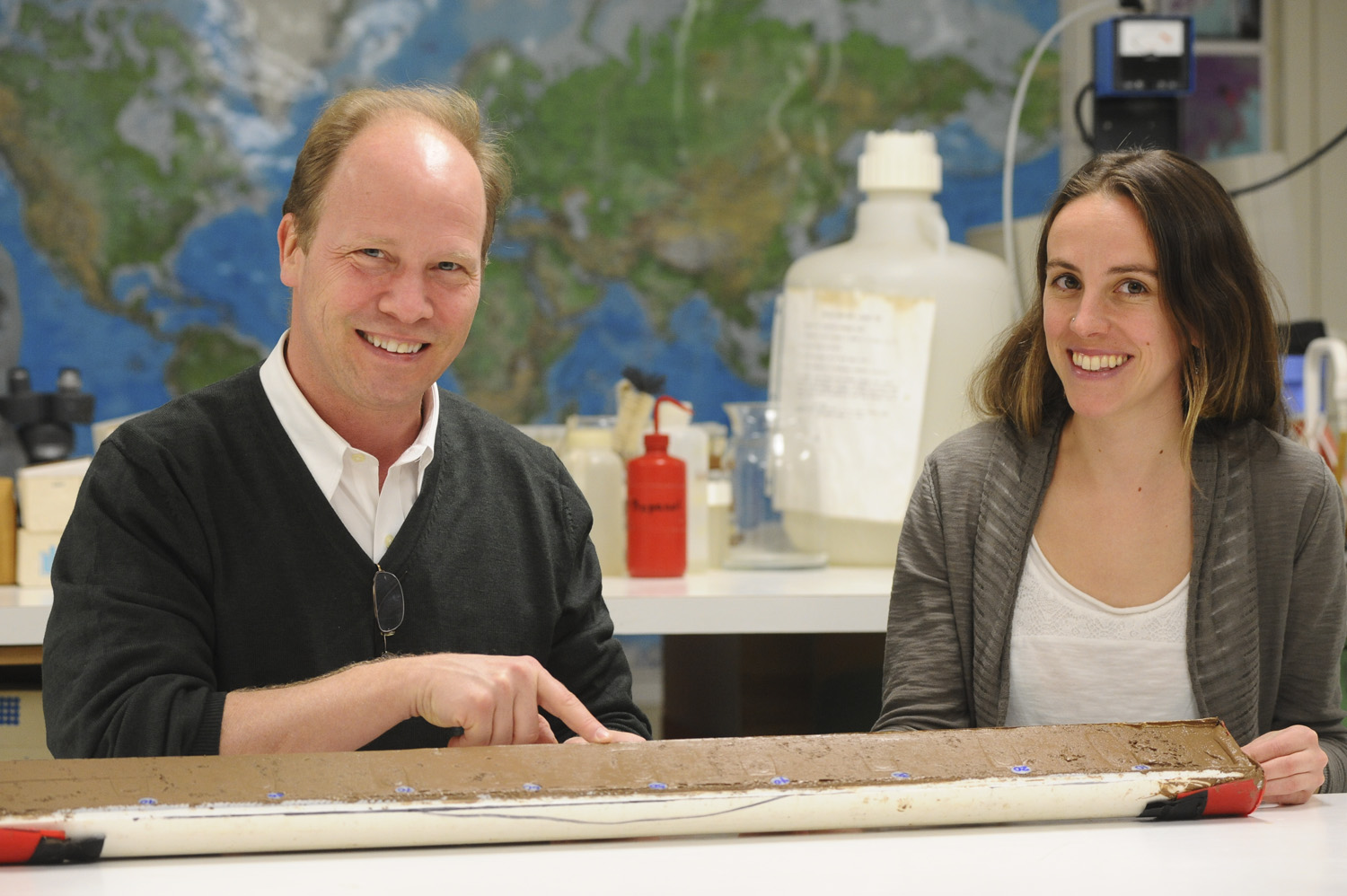Lamont-Doherty Earth Observatory150
-

When the Sahara Turned to Sand
The Sahara wasn’t always a desert. Trees and grasslands dominated the landscape from roughly 10,000 to 5,000 years ago. Then, abruptly, the climate changed. A study by Lamont-Doherty’s Peter deMenocal says it took just a few hundred years to happen.
-

On Nov. 12, Meet Climate Models in New York City
Who’s studying Earth’s climate? Why? Where? How? And what are they learning? Panelists will explore these questions and discuss creative methods that can be used to better communicate climate science to the public.
-

The Hottest Thing Since the Hadean Eon
Presenting the 2014 Climate Models wall calendar: the only calendar on Earth that shares the planet’s hottest climate science and the people behind it.
-

The Arctic’s Secret Garden
Lamont-Doherty Earth Observatory marine biologists Craig Aumack and Andy Juhl spend a month each spring in Barrow studying the algae dwelling in and under the sea ice. Their goal is to learn more about the different species of algae that compose these communities and their role in the Arctic marine food web.
-

Exploring New Zealand Climate Change in Groundwater
Alan Seltzer, a senior at Columbia University, traveled to New Zealand this past summer to work on field experiments aimed at reconstructing temperatures in the region over the last 20,000 years. His adviser, geochemist Martin Stute, is working closely with colleagues at Lamont-Doherty to understand how the southern hemisphere came out of the last ice…
-

Q&A: Climate Change, Drought and the Future
“One of the ways that climate change is going to manifest is through warmer temperatures. … What we are seeing, in line with our projections, is that even if you assume constant precipitation, the temperature effects are so large that it is going to dry things out. This is going to have really big impacts…
-

Seismology as Performance Art
Ideally, seismic stations are sited in remote, quiet locations. But other considerations are important for a good station, particularly security. As a result, we placed most of our stations in towns near schools, hospitals or town halls, where people could keep an eye on them.
-

Surface Views of the Southern East Africa Rift Inspire a Look Underground
Driving around the Rungwe volcanic province in the southern East Africa Rift installing seismometers, we have the chance to observe first hand how geological processes in action create the most dramatic forms at Earth’s surface.

By studying thousands of buildings and analyzing their electricity use, Columbia Climate School Dean Alexis Abramson has been able to uncover ways to significantly cut energy consumption and emissions. Watch the Video: “Engineering a Cooler Future Through Smarter Buildings“

